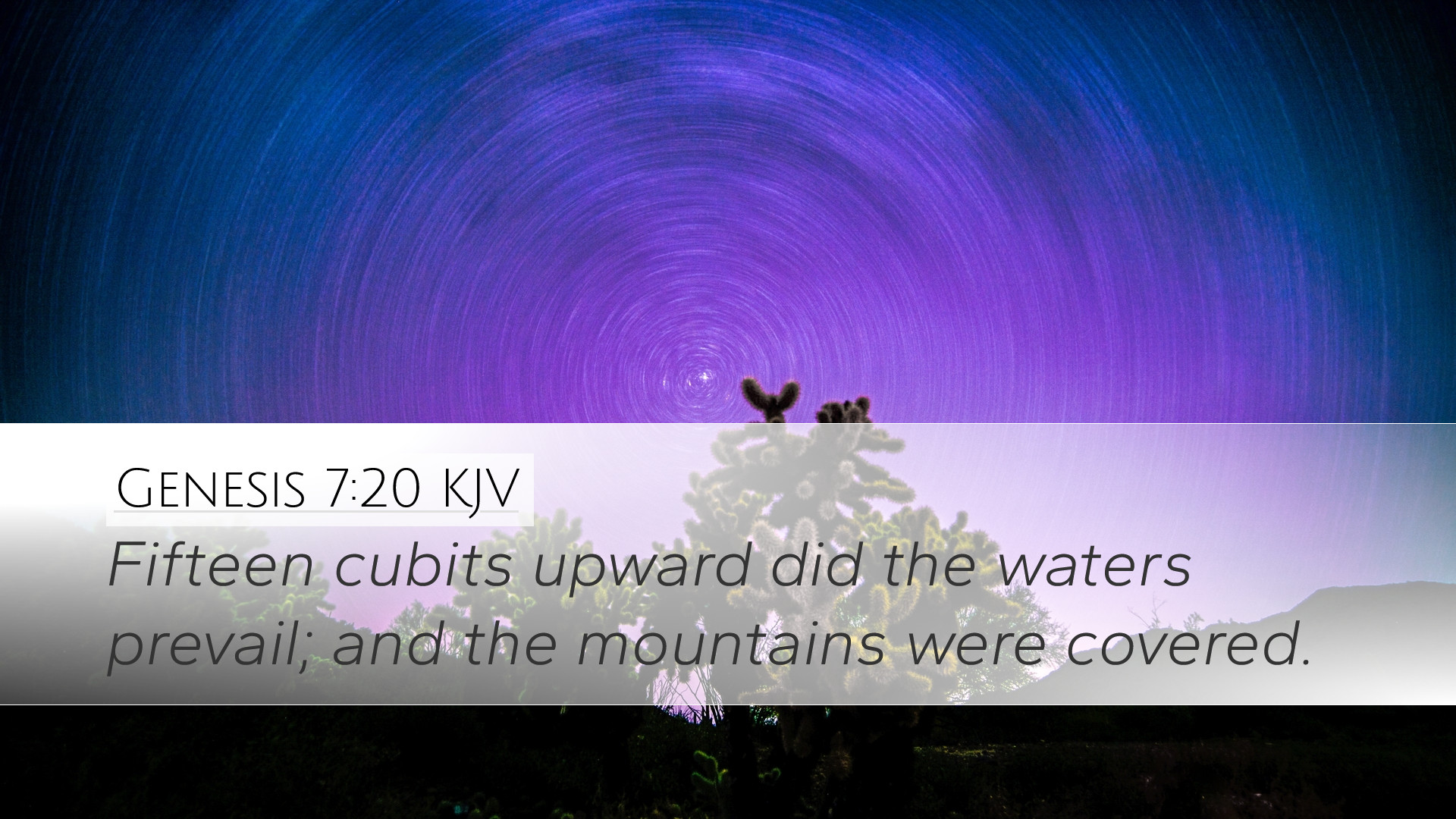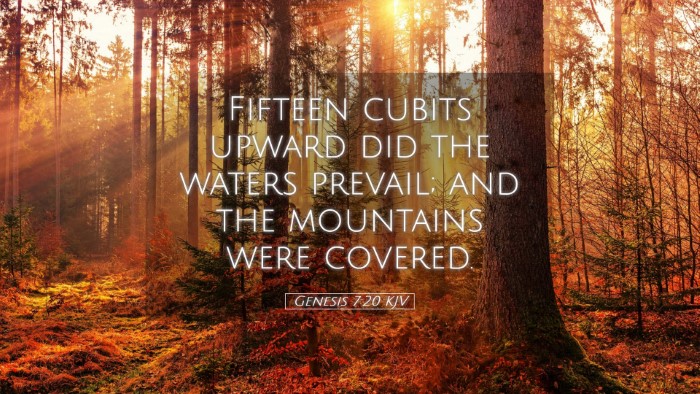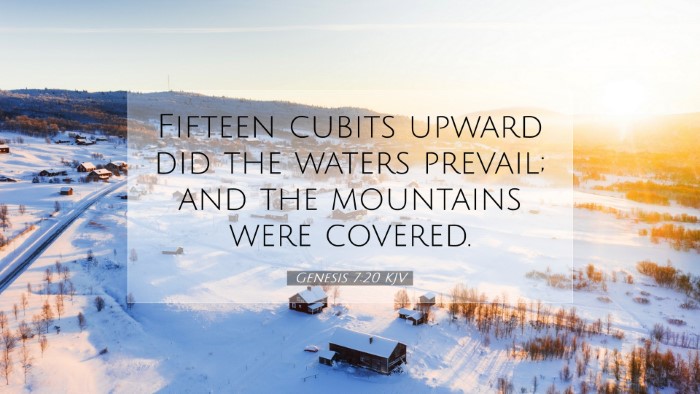Commentary on Genesis 7:20
Genesis 7:20 states: "Fifteen cubits upward did the waters prevail; and the mountains were covered."
Overview
This verse captures a significant moment in the narrative of the Great Flood, wherein the waters overwhelmed the earth, illustrating divine judgment and mercy intertwined. The height to which the waters rose—fifteen cubits—signifies not merely the extent of the flood but serves as a testament to God's sovereign power over creation.
Theological Significance
The waters representing the judgment of God can symbolically reflect the moral state of humanity prior to the flood. As Matthew Henry notes, the flood serves as an object lesson about divine wrath against sin, demonstrating that God does not overlook transgressions indefinitely. This intense display of judgment also emphasizes God's commitment to justice; He intervenes in human history to address evil.
Divine Judgment
Matthew Henry elaborates that the flood represents God's displeasure towards mankind's corruption. It reveals how far humankind had strayed from God’s intentions for creation. The immense height to which the waters rose symbolizes the overwhelming nature of divine judgment, overpowering the arrogance and intentions of humanity. The coverage of the mountains signifies that no refuge remains from God's judgment—an important reminder for all generations of the seriousness of sin against a holy God.
Covenantal Mercy
Despite the overwhelming judgment, there is an element of mercy ingrained within the narrative. As Albert Barnes points out, even in judgment, God provides a means of salvation through Noah and the ark. This paradox highlights that while God's holiness cannot ignore sin, His love provides a means for redemption. The very act of preserving Noah and his family underscores God's grace amidst judgment, revealing His character as both just and merciful.
Structural and Contextual Insights
Adam Clarke offers insight into the measurements and implies that the height of the flood waters was not arbitrary. Fifteen cubits equal approximately 22.5 feet, which suggests a complete submergence of earthly life, including the highest peaks. This detail emphasizes the finality of the flood's destruction—nothing existed outside of the divine decree when God decided to cleanse the earth. It becomes evident that God’s decisions in judgment are precise and purposeful.
Symbolism of Water
The use of water in this context can also signify cleansing and chaos. Water serves both as an agent of destruction and a means for renewal. Just as God used the waters to purge evil, the same waters also ushered in a new beginning post-flood. Clarke suggests that this duality of water remains a significant theme throughout Scripture, resonating in later sacramental imagery, such as baptism—death to sin and rebirth in Christ.
Practical Applications
- Promotion of Holiness: This verse urges readers to reflect upon the seriousness of sin and the necessity for holiness.
- Assurance of God’s Sovereignty: Believers are reminded of God's ultimate authority over the natural world and human affairs.
- Hope in Judgment: The preservation of Noah illustrates that through God's judgment, there is hope for remnant and restoration.
Conclusion
Genesis 7:20 serves as a profound reflection on God’s character, underscoring His holiness and justice while simultaneously revealing His mercy and sovereignty. As pastors, students, theologians, and scholars delve into this verse, they are invited to consider the comprehensive nature of God's dealings with humanity. The flood narrative, marked by destruction and salvation, continues to resonate as a potent reminder of the balance between divine judgment and grace.


